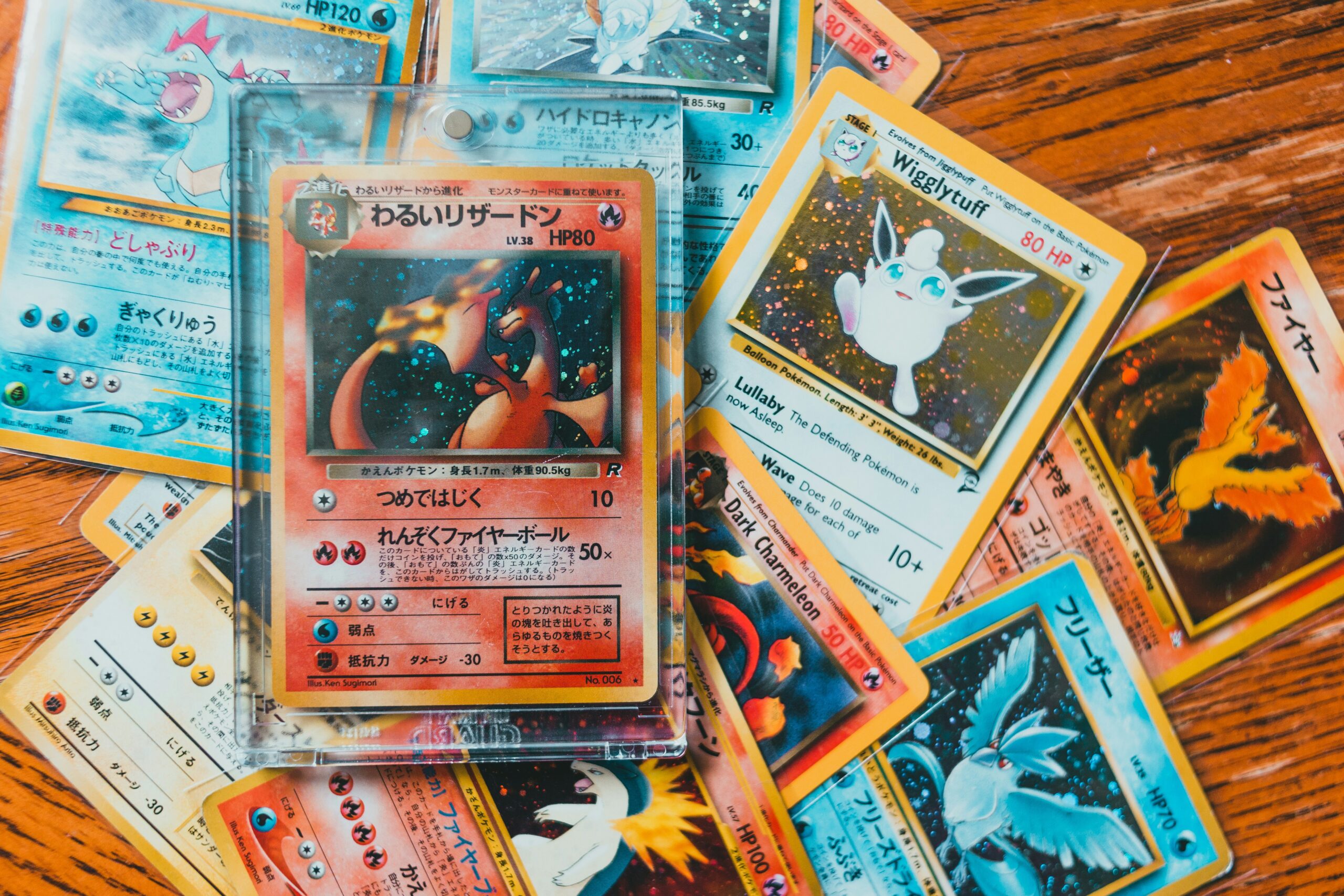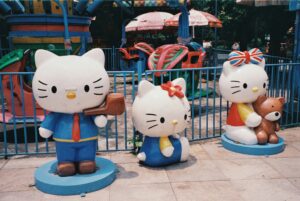In an era where digital dominates, the Pokémon Trading Card Game (TCG) has defied expectations, experiencing a remarkable resurgence that has captured the attention of enthusiasts and investors alike. From humble beginnings in the playgrounds of the ’90s, Pokémon cards have evolved into a global phenomenon, transcending their original purpose as mere game pieces to become valuable collectibles and a staple of competitive gaming. This article delves into the multifaceted world of Pokémon TCG, exploring its rise to prominence, the impact of digitalization, and the future of this enduring craze.
Unpacking the Pokémon TCG Phenomenon
The Pokémon Trading Card Game has not just survived; it has thrived, captivating a vast audience with its intricate gameplay and collectibility. Its origins trace back to Japan in 1996, coinciding with the Pokémon video game series, and it quickly spread globally. The game involves players acting as Pokémon trainers, battling their Pokémon against others. What sets Pokémon TCG apart is its ability to continually adapt and expand, introducing new cards and mechanics that keep the game fresh and engaging. This adaptability has been crucial in sustaining its popularity over decades. Furthermore, the TCG has fostered a deeply engaged community, with players sharing strategies, trading cards, and participating in tournaments, contributing to its vibrant culture.
The Rise of Pokémon Cards: A Global Surge
The global surge in Pokémon TCG’s popularity is nothing short of extraordinary. Initially a hit among children and teenagers in the late ’90s, its appeal has broadened, attracting adults who grew up with Pokémon and a new generation of enthusiasts. This resurgence can be attributed to a perfect storm of nostalgia, increased disposable income among millennials, and the universal appeal of the Pokémon brand. Major markets in North America, Europe, and Asia have reported record-high sales, with certain card releases causing frenzies among consumers eager to add to their collections or invest in potential future value.
From Playgrounds to Profits: The TCG Evolution
What began as a simple game played in school playgrounds has evolved into a lucrative industry. Rare Pokémon cards have sold for hundreds of thousands of dollars at auctions, transforming the landscape of collecting. This transition from playground play to significant profits has been facilitated by the internet, with online marketplaces and social media platforms allowing collectors and sellers to connect globally. The rarity, condition, and uniqueness of cards now play a crucial role in their value, turning Pokémon TCG into both a hobby and an investment.
The Role of Nostalgia in Pokémon TCG’s Popularity
Nostalgia plays a pivotal role in the enduring popularity of Pokémon TCG. For many adults, collecting and playing Pokémon cards is a way to reconnect with their childhood. This sentimental value, combined with the joy of sharing the experience with the next generation, fuels the continued demand for Pokémon products. The brand has skillfully capitalized on this, releasing special anniversary editions and reprints of classic cards, further bridging the gap between past and present players.
Breaking Down the Collector’s Market
The collector’s market for Pokémon TCG is both vast and varied. It ranges from casual enthusiasts who cherish the art and nostalgia of the cards, to serious investors focused on rare and valuable editions. The market dynamics are influenced by factors such as card rarity, edition, condition, and demand. Limited edition releases and special promotional cards often see the highest values. The community around collecting is vibrant and supportive, with forums, social media groups, and conventions facilitating the exchange of knowledge and cards.
How Pokémon TCG Adapted to the Digital Age
Pokémon TCG has seamlessly transitioned into the digital age, broadening its reach and accessibility. The Pokémon TCG Online platform allows players to collect and battle digitally, appealing to a generation that prefers online gaming. This digital version has introduced the game to a wider audience, providing a convenient way to play without the need for physical cards. Additionally, the digital platform has become a tool for teaching the game’s mechanics to newcomers, ensuring the game’s longevity.
The Competitive Scene: Tournaments and Titans
The competitive scene of Pokémon TCG is a testament to its complexity and strategic depth. Players from around the world compete in regional, national, and international tournaments, with some becoming renowned figures within the community. These tournaments not only serve as a showcase of the highest level of play but also as major social gatherings for the community, strengthening the bonds between players. The competitive circuit has been instrumental in maintaining the game’s prestige and appeal.
Celebrity Influence and Pokémon Card Frenzy
Celebrities have played a significant role in sparking the recent Pokémon card frenzy. High-profile personalities from the entertainment and sports worlds have publicly shared their passion for collecting, further legitimizing the hobby and attracting new collectors. Some celebrities have made headlines for purchasing extremely rare cards for staggering amounts, creating a media buzz that has undoubtedly contributed to the surge in interest and investment in Pokémon TCG.
The Economics of Pokémon Trading Cards
The economics of Pokémon trading cards are complex, driven by supply and demand, speculation, and the emotional value placed on them by collectors. The market has seen significant fluctuations, with prices for certain cards skyrocketing overnight. This volatility has attracted investors looking to capitalize on the trend, though it has also raised questions about sustainability. The economic impact of Pokémon TCG extends beyond individual collectors, influencing retailers, online marketplaces, and even professional grading services.
Navigating the Future of Pokémon TCG
As Pokémon TCG continues to navigate its future, several challenges and opportunities lie ahead. The game must balance the nostalgia of long-time fans with the need to innovate and attract new players. Environmental concerns regarding card production and sustainability are becoming increasingly pertinent. However, the brand’s ability to adapt—evidenced by its successful digital transition and expansion into new markets—suggests a bright future. Engaging the next generation of players while maintaining the essence of what has made Pokémon TCG a beloved pastime is key to its enduring success.
Sustainability and the Card Collecting Boom
The boom in card collecting has raised questions about sustainability, both in terms of the environment and the market. The production of physical cards has environmental impacts, prompting discussions about alternative materials and digital options. Additionally, the market’s rapid growth has led to concerns about speculative bubbles. Addressing these challenges head-on, while continuing to innovate and engage a diverse audience, will be crucial for Pokémon TCG’s sustainable growth.
Pokémon TCG: Beyond the Hype, What’s Next?
Looking beyond the hype, the future of Pokémon TCG is ripe with potential. With plans to further expand the digital platform, explore sustainable production methods, and continue engaging its global fanbase with creative content, the game is set for continued success. The community’s passion, the brand’s resilience, and the game’s ability to innovate ensure that Pokémon TCG will remain a cultural phenomenon for years to come.
The resurgence of the Pokémon Trading Card Game is a fascinating tale of revival, evolution, and enduring appeal. From its roots as a beloved playground pastime to its status as a global collector’s and competitive phenomenon, Pokémon TCG has proven its ability to adapt and captivate. Navigating the challenges of the digital age, market dynamics, and sustainability concerns will be crucial for its future. Yet, with a robust community and a brand that continually innovates, Pokémon TCG is well-positioned to thrive in the ever-changing landscape of gaming and collectibles.








